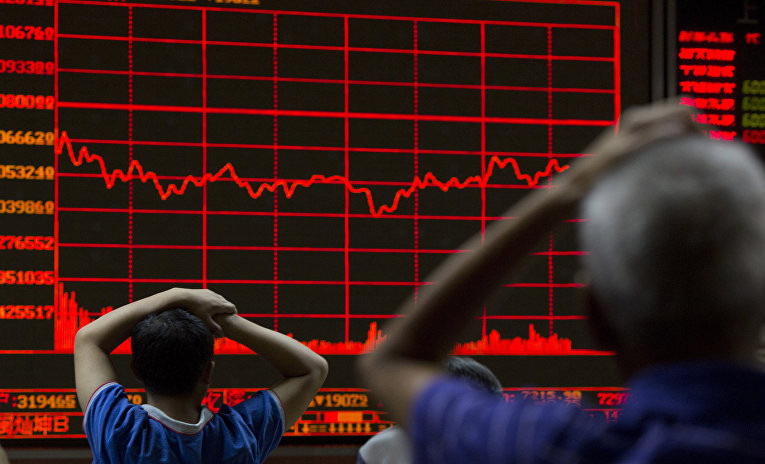
Asian stock exchanges exhibited a sharp and significant reduction in all positions on Tuesday. The major stock indexes fell amid serious concerns about the increase in the number of cases of coronavirus infection in the world and in certain regions and countries. Market participants are also thrown out of balance by the unresolved situation with the financial stimulus program in the US.
Japan's Nikkei 225 Index dropped 0.08%.
China's Shanghai Composite Index rose marginally at 0.01%. The Hong Kong Hang Seng Index plunged 0.71%.
South Korea's KOSPI index lost 0.65%. The state of the country's economy is gradually improving, as evidenced by statistics. In the third quarter of this year, South Korea finally turned to economic growth after the recession caused by the coronavirus pandemic. The country's GDP from July to September increased by 1.9%, which is the highest growth in the last ten years. However, there are still concerns that the second wave may undermine the entire positive that has begun.
Australia's S&P/ASX 200 Index fell 1.7%.
On Tuesday, a telephone conversation took place between House Speaker Nancy Pelosi and Treasury Secretary Steven Mnuchin, which concerned resolving differences between the parties to speed up the final decision on the stimulus package. According to the data, the previous disagreements were removed, but the problem is that others have taken their place, and their number is increasing. In this regard, investors begin to doubt that the stimulus program will be signed before the US presidential election.
Nevertheless, experts warn that any, even the most insignificant, and implicit signs of progress in the negotiation process already have a very positive effect on market participants. In general, it is worth noting the potential positive that the deal may bring in the stock market in the future.
Investors' serious consideration of the epidemiological situation in the world and in the US remains the most pressing issue at the moment. The sharp increase in the number of patients in the last few days is of great concern not only for market participants but also for governments of states that are forced to introduce strict restrictive quarantine measures that do not have a very favorable impact on the state of the economy. Thus, a full-fledged way out of the crisis is not yet possible. The second wave of the pandemic delays this process indefinitely.
Meanwhile, European stock markets, likewise, traded in a negative zone on Tuesday. Major stock indexes are failing to withstand pressure from the growing number of new cases of COVID-19 infection. Even the unexpectedly high profitability of some financial institutions in the region does not save the situation.
The general index of the largest companies in the European region STOXX 600 decreased by 0.4%.
The German DAX Index is down 0.3%. France's CAC 40 index sank 0.8%. The UK FTSE Index lost 0.1%.
As of Tuesday morning, the number of new cases of coronavirus infection globally has increased by 43.4 million. Such a rapid increase was not observed in the first wave of the pandemic, which causes even greater concern.
The second wave in the European region has become even more destructive than the first one. The number of cases is already breaking all records, and new restrictive measures have so far saved the situation. But the region's economy is already beginning to experience difficulties. In particular, the level of economic activity fell sharply in Spain after the government declared a state of emergency for six months.
All this once again pushes the European Central Bank to more productive and thoughtful actions that will support the economy.
 English
English 
 Русский
Русский Bahasa Indonesia
Bahasa Indonesia Bahasa Malay
Bahasa Malay ไทย
ไทย Español
Español Deutsch
Deutsch Български
Български Français
Français Tiếng Việt
Tiếng Việt 中文
中文 বাংলা
বাংলা हिन्दी
हिन्दी Čeština
Čeština Українська
Українська Română
Română

